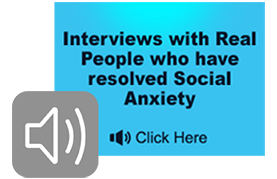Sterling Heights
October 16, 2012
By Cortney Casey, C & G Staff Writer
The approximately 250 strangers conversing amongst themselves fell silent and turned their attention to Patty Kukes as she stepped to the podium on Sept. 27.
It was the kind of setting that would have constituted her son Andy’s worst nightmare. But that was precisely the point of “Misunderstood No More,” a presentation put on by the Andrew Kukes Foundation for Social Anxiety and hosted by Macomb County Community Mental Health Services.
“I’m very nervous today. I’m not a public speaker, but I’m up here in front of all of you,” said Patty Kukes, flanked by her ex-husband, Jeff. “Our son, Andy, couldn’t have even walked into this room. He had social anxiety — and it literally killed him.”
Andy, she said, “had every chance at a wonderful life.” He was an athlete, valedictorian of his high school class and a Princeton graduate. But even after seeking help from a series of therapists, he became virtually homebound “because he was so afraid of being judged, how his performance would be perceived,” she said.
Andy Kukes fatally shot himself July 14, 2009. He was 30 years old.
His suicide prompted the family — originally from Bloomfield Hills, now living in Florida — to launch a nonprofit organization in his memory in hopes of preventing future tragedies.
Social anxiety is particularly daunting to treat because it doesn’t manifest itself as obviously or outwardly as a severe physical injury or disease, yet its consequences can be equally grave, said Patty Kukes.
“If someone is blushing when they’re talking to you and sweating and very distressed and can’t look you in the eye, they’re sick on the inside,” she said. “Is it best to ignore that? Can we help them? Is it best to walk away?”
Social worker Jonathan Berent, who’s worked with social-anxiety patients since the mid-1970s, addressed those questions and more during the presentation, before a crowd of health-care professionals and laypeople at the Best Western Plus Sterling Inn Banquet & Conference Center Sept. 27.
As social anxiety is a disease of detachment, the key is getting patients to attach — which means they need to get comfortable with being uncomfortable, said Berent, author of “Beyond Shyness: How to Conquer Social Anxieties” and “Work Makes Me Nervous: Overcome Anxiety and Build the Confidence to Succeed.”
Social anxiety sufferers often develop a sense of hyper-vigilance in childhood, “a defensive radar that can cause burnout” as the nervous system works overtime, said Berent.
They start believing a never-ending internal script that tells them they’re inferior. Anxiety typically leads to avoidance, and sufferers often put off seeking treatment or turn to the Internet for “magic” remedies, he said.
Addressing adrenaline control is among treatment techniques, said Berent. Patients are encouraged to have realistic expectations: Instead of hoping an uncomfortable situation won’t spark an adrenaline rush, “accept the adrenaline-driven visceral response as a source of power and your friend,” he said.
Take one or two diaphragmatic breaths, then “surf” the wave of adrenaline instead of resisting it, he said.
“The surfer goes with the adrenaline; he or she is in control,” he said. “You do not go with it, you get smashed around. That’s a panic attack.”
According to Berent, working with enablers in the patient’s life also is crucial. If parents are contacting a therapist on their child’s behalf, they need to come in to get on board with the system of treatment, he said.
Besides events like the Sept. 27 community presentation, the Andrew Kukes Foundation offers two versions of a 10-hour intensive course helmed by Berent: one on DVD for professionals pursuing educational credits and one online for families, who can watch it for a donation, said Lori Blumenstein-Bott, the organization’s executive director.
Through its website, the foundation also is offering webinars with subject-matter experts, live-stream discussions with Patty and Jeff Kukes, questionnaires assessing social anxiety symptoms, aggregated relevant articles, links and other resources.
“Through awareness and education, the conversation begins,” said Blumenstein-Bott. “That’s how we want to build that message on a national level. The more lives you touch with this, the more people start talking about it.”
For more information on the Andrew Kukes Foundation for Social Anxiety, visit www.akfsa.org or call (561) 921-5151.
You can reach C & G Staff Writer Cortney Casey at ccasey@candgnews.com or at (586)498-1046.




